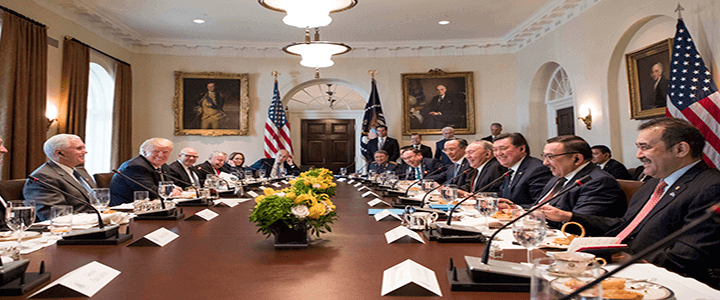Paul Yingling, an army lieutenant colonel, wrote in 2007 that “a private who loses a rifle suffers far greater consequences than a general who loses a war.” Anyone who has ever seen a sign posted on an Afghanistan chow hall entrance reading: “Rifle found. Please see the First Sergeant to get it back” knows immediately that feeling of relief. Thank goodness it wasn’t me. But does the same hold true for security clearances? Is there a double-standard based on rank? Anecdotally, the answer is murky. Certainly, a commander can make life hell for anyone who, say, loses a SIRPNet token card. Commanders are obligated to report possible derogatories to the Department of Defense Consolidated Adjudication Facility (CAF). Reportable actions include:
- Allegiance to the United States
- Foreign Influence
- Foreign Preference
- Sexual Behavior
- Personal Conduct
- Financial Considerations
- Alcohol Consumption
- Drug Involvement
- Psychological Conditions
- Criminal Conduct
- Handling Protected Information
- Outside Activities
- Use of Information Technology Systems
That just about covers every conceivable human action, and commanders are thus required to exercise discretion. They have a lot of leeway, and bias or bad days can ruin someone’s career. Do some get off lighter than others for similar violations? Almost certainly. There are informal clearance suspensions that can be exercised at the command level, and formal suspensions that once exercised can only be reactivated by the CAF. While subsequent investigations can end favorably for the service member in limbo, they may not, making one’s remaining time in the military an unpleasant one—or at least, a very confined one.
The Jared Kushner Test
This week, the clearance world saw what can be fairly called equal justice under the law. Jared Kushner, the president’s son-in-law and formal adviser, was stripped of his Top Secret clearance and downgraded to Secret. Politics aside, it is hard to be better connected than Kushner, nor to have a higher profile position in government; perhaps only the secretary of state has a bigger policy portfolio. If someone like Kushner can lose his security clearance, you know two things:
1. The system is working.
Kushner by any standard submitted an incomplete SF-86. He reported zero contacts with foreign entities, for example. After several amendments to his paperwork, he finally reported over one hundred. Charles Phalen, the director of the National Background Investigations Bureau in the Office of Personnel Management, told Congress that he has “never seen that level of mistakes” in an application.
2. The system is even-handed when it matters.
President Trump doesn’t strike one as being easy to please; it would have been much easier for a member of the federal bureaucracy to give Kushner a TS just to forego any possible future problems just on a personal level. But he or she didn’t, and Kushner now has the same clearance as your average supply clerk at Bagram.
“It is important that we treat people in an even handed manner in the clearance process and with respect to continued access to classified information,” says Jamil Jaffer, the founder of the National Security Institute at the Antonin Scalia Law School at George Mason University. He tells ClearanceJobs that the public’s faith in the clearance apparatus depends on such an unbiased adjudication.
“If people are losing their clearances because they did one thing and another person did the same thing and didn’t lose their clearance, all other things being equal, that’s almost certainly a problem. At the end of the day, we want clear rules as far as possible and we want to enforce them effectively. And that should be true in the clearance process as well as in the post-clearance process,” he says.
The President’s Power
The Kushner test was a fair rendering of how things ought to work. Moreover, should the president abide by Kushner’s clearance downgrade (as he has indicated he would), it would add greater legitimacy to the clearance process as implemented. After all, in clearance matters, the president is like the pope. He could grant clearances the way the Vatican makes cardinals. The entire system is borne of executive orders; it exists, in other words, because the president says it exists. Congress might make noise about it, and has claimed some level of oversight in clearance matters, but the courts have previously affirmed the president’s authority.
“As a general matter, the executive branch has taken the position that the executive branch has absolute and unfettered authority to classify and declassify information and to grant or deny clearances, and that Congress has limited ability, if any, to restrict that authority,” says Professor Jaffer. “As with many national security issues, there is always going to be some tension between the legislative and executive branches.”
He says that in any event, it would be highly unusual for either a political official in the executive branch or a member of Congress to completely ignore the views of adjudicators when it comes to granting a security clearance to a staff member. It comes down to the professionalism of investigators and adjudicators. “There is a fluidity to the process that is natural, and some of this is about assessments made by investigators based on a long history of experience on whether a person is appropriate for a clearance or not. And then a further assessment made by the adjudicator. And then a further assessment may—in certain cases— be made by an ultimate decision maker.”
As long as the public has faith that the clearance process works, secrets—and the protection of them—have meaning and urgency. If ever it becomes a power granted arbitrarily or as a reward for fealty, the efficacy of the system will not endure. If this week has proven anything, it is: so far, so good.




